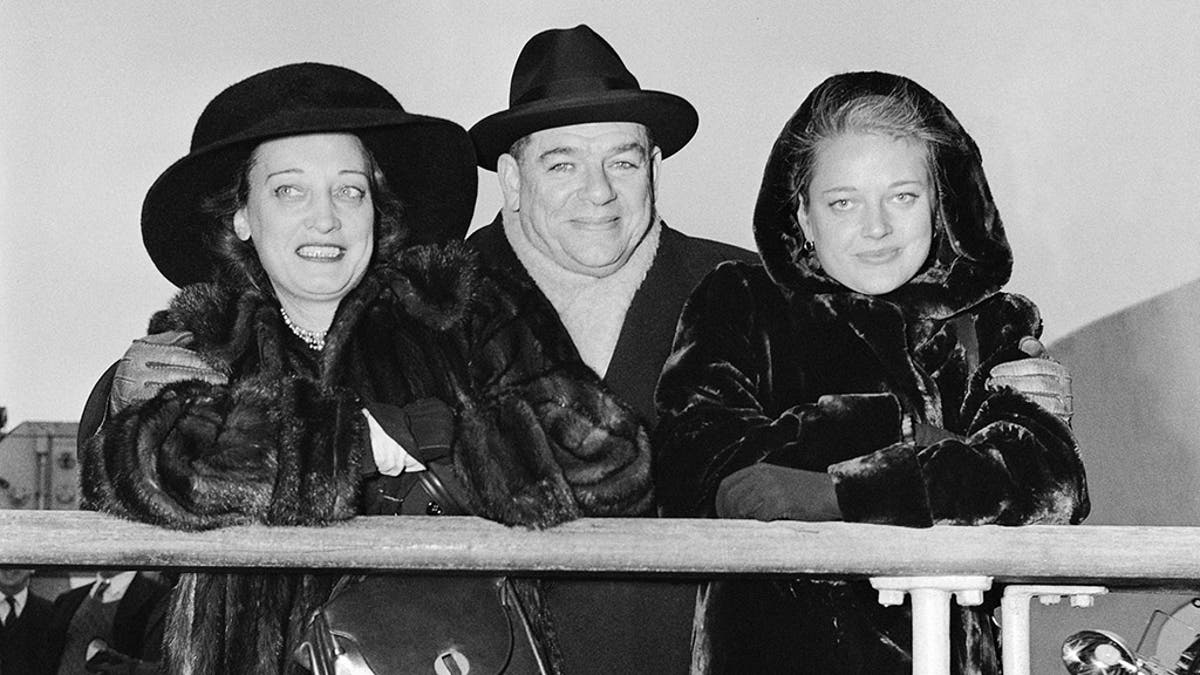
FILE -- Oscar Hammerstein, playwright and producer, his wife Dorothy, and daughter Susan Blanchard, arrive in New York, Dec. 15, 1947, aboard the liner Mauritania from Europe. (AP Photo/Joe Caneva)
Easter, Passover, spring break, holiday weekend. Let us unfurrow the brow and look at something elevated. It’s a small thing, a half-hour television interview from 60 years ago, but it struck me this week as a kind of master class in how to be a public figure and how to talk about what matters. In our polarized moment it functions as both template and example.
In March 1958, the fierce young journalist Mike Wallace —already famous for opening an interview with the restaurateur Toots Shor by asking, “Toots, why do people call you a slob?”—decided to bore in on Oscar Hammerstein II. (For the record, Shor responded that Wallace had him confused with Jackie Gleason. ) Hammerstein was the fabled lyricist and librettist who with composer Richard Rodgers put jewels in the crown of American musical theater—“Oklahoma,” “South Pacific,” “The King and I,” and “Carousel,” whose latest Broadway revival is about to open. He was a hero of American culture and a famous success in a nation that worshiped success.
Wallace was respectful but direct and probing. He asked Hammerstein if critics who’d called his work sentimental didn’t have a point.
Hammerstein said his critics were talented, loved the theater, and there was something to what they’d said. But he spoke of sentiment “in contradistinction to sophistication”: “The sophisticate is a man who thinks he can swim better than he can and sometimes drowns himself. He thinks he can drive better than he really can and sometimes causes great smash-ups. So, in my book there’s nothing wrong with sentiment because the things we’re sentimental about are the fundamental things in life, the birth of a child, the death of a child or of anybody, falling in love. I couldn’t be anything but sentimental about these basic things.”
Keep reading Peggy Noonan's column from the Wall Street Journal.
